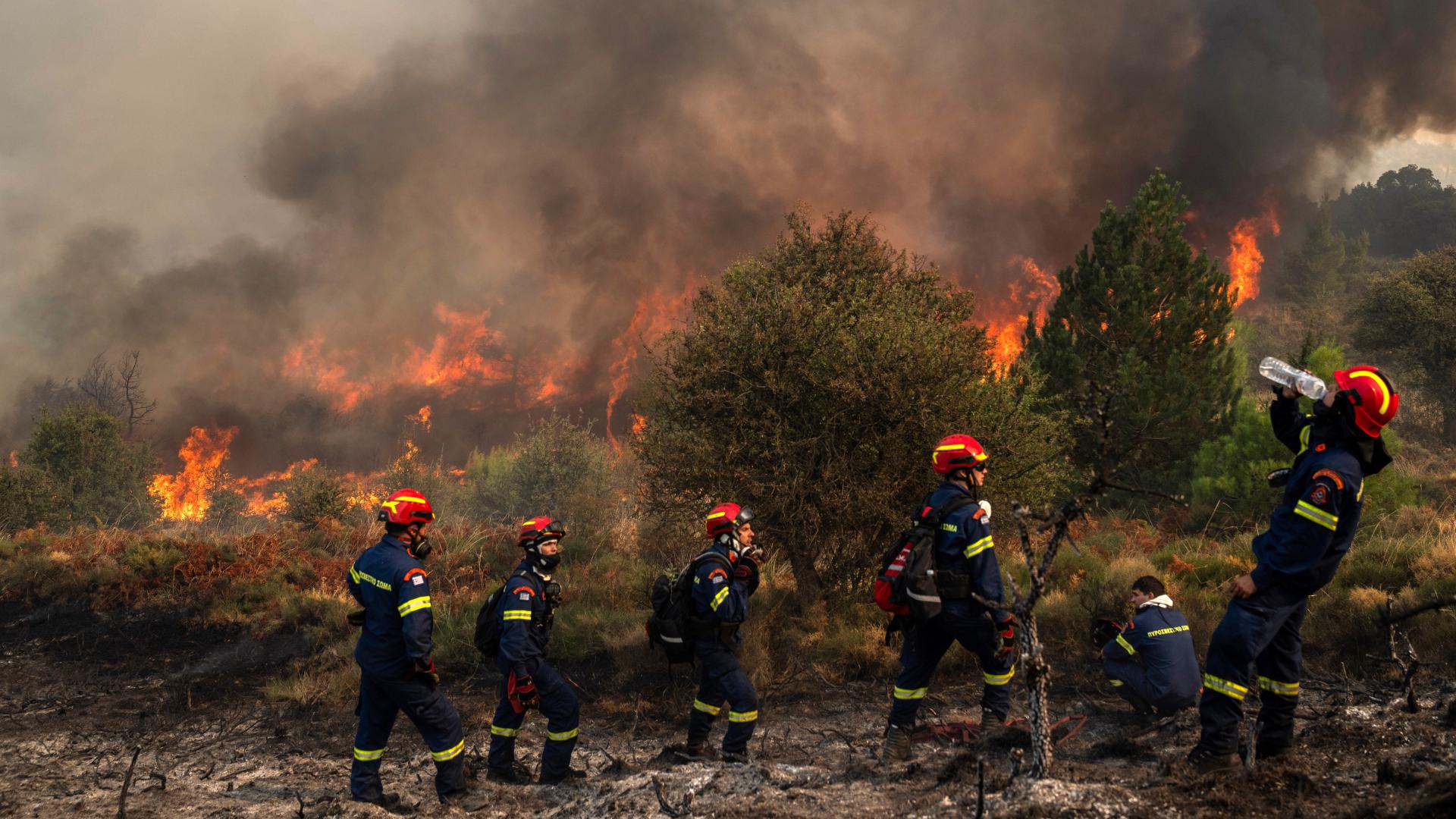Greek firefighters advance in controlling fatal forest fire
Greek firefighters are making strides in controlling a lethal forest fire. The crews are working tirelessly to combat the flames, which have posed significant threats to both lives and property.

The fire has already claimed the lives of two local residents as of Sunday, but reports indicate it is now receding. Firefighting teams are currently focused on extinguishing scattered smaller fires within the affected area.
Satellite imagery from Greece’s weather service reveals that approximately 6,500 hectares of rugged and mountainous terrain in the Corinthia region of the Peloponnese has been impacted by the blaze. The fire service suspects that a local beekeeper inadvertently ignited the fire while attempting to smoke out hives for honey harvesting, despite having been warned about the elevated wildfire risk. A statement from the service noted that the individual has been fined, and the case will be forwarded to judicial authorities.
On Wednesday, around 570 firefighters were on the ground, supported by 160 fire trucks and 11 aircraft, including three from Italy and Croatia, dispatched after Greece sought assistance from other European Union nations.
Precautionary evacuations were ordered for more than seven villages between Sunday and Tuesday, but firefighters successfully kept the flames from encroaching on these communities. However, several outlying structures were reportedly damaged, and a historic church in the vicinity was destroyed.
Every summer, Greece faces devastating and often fatal forest fires, similar to other southern European countries. This year has seen an unprecedented number of more than 4,500 blazes, fueled by a combination of drought linked to climate change, high spring temperatures, and enduring summer heatwaves. Notably, many fires have erupted outside of the typical summer months when such outbreaks are usually anticipated.
On the same day, the fire service reported that an additional forest fire had ignited in the Peloponnese, west of Corinthia, in the mountainous Kalavryta area, where over 40 firefighters and four aircraft are currently battling the flames.
Max Fischer contributed to this report for TROIB News
Find more stories on the environment and climate change on TROIB/Planet Health












